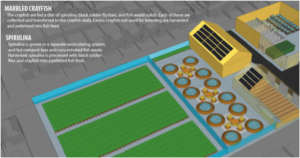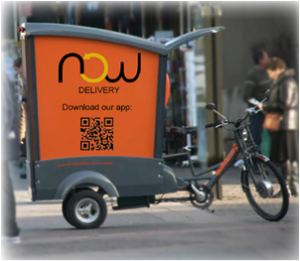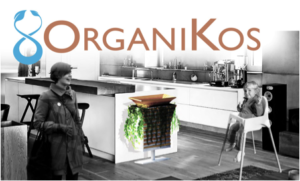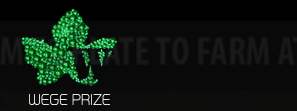NEWS RELEASE
For Immediate Release
Contact:
Elena Tislerics
Coordinator, Wege Prize
Chief Communications Officer, Kendall College of Art and Design
elena@wegeprize.org
$30,000 awarded in wicked problem solving competition
Winners of Wege Prize 2015 announced; 2016 international competition launched
1st place team Western Sustainers earns $15,000 for designing agricultural system that
upcycles waste and acts in symbiosis with the surrounding community
Grand Rapids, Mich. March 31, 2015 – Assembling in-person for the first time since forming teams in January, undergraduate competitors from the three transdisciplinary finalist teams in Wege Prize 2015 presented their solutions to the wicked problem of creating a circular economy. The winners were named on March 28 at the second annual Wege Prize Awards, where the teams presented their innovative solutions to five internationally-known judges, as well as public and online audiences.
This year’s competition again challenged teams of five to revolutionize the world’s linear economic models into ones which are regenerative by designing a product, service, or business model that could function within and help create a circular economy – a model in which resources can be re-adapted for use without limiting the desirability of products or the flow of revenue. Now in its second year, Wege Prize was held on a national level, and teams were again required to represent at least two different academic institutions and at least three different academic disciplines.
Winners:
 1st place – $15,000
1st place – $15,000
Team name: Western Sustainers
Cara Givens, Biomedical Sciences, Western Michigan University College of Arts and Sciences
Elijah Lowry, Geography, Western Michigan University College of Arts and Sciences
Kelsey Pitschel, Mechanical Engineering, Western Michigan University College of Engineering
Max Hornick, Public Relations, Western Michigan University College of Arts and Sciences
Ramon Roberts-Perazza, Civil Engineering, Western Michigan University College of Engineering
Solution: Local Loop Farm – This agricultural system is designed to act in symbiosis with its surrounding community, utilizing hot composting, hydroponics, and other innovative technologies to produce fresh, healthy, local, and affordable fish and vegetables while upcycling waste and eliminating many of the negative impacts associated with existing food production and consumption.
“Impressive research and analysis by this team, and in speaking with them afterward we were excited to hear that plans are underway to implement their project.” – Judge Ellen Satterlee
 2nd place – $10,000
2nd place – $10,000
Team name: Pixelation
Alexandra Vasquez Dheming, Production Design, Savannah College of Art and Design
Karla Ronaszegi, Industrial Design, Savannah College of Art and Design
Lynae Brooks, Architecture, Savannah College of Art and Design
Ryan Parrish, Industrial Design, Kendall College of Art and Design of Ferris State University
Taina Fuzaro Bercho, Industrial Design, Savannah College of Art and Design
Solution: No Waste Delivery (NOW) – this food delivery service is designed to change the food consumption and purchasing norms of the urban office worker by reducing packaging waste, food waste, and delivery service fuel emissions.
“We really appreciated the research that Pixelation did in terms of what solutions already exist, both in the US and abroad, and that they attempted to establish circular flows of resources where existing food delivery services hadn’t.” – Judge Gretchen Hooker
 3rd place – $5,000
3rd place – $5,000
Team name: The Originals
Christa Iscoa, Architecture, Savannah College of Art and Design
John Worthley, Energy Engineering, Penn State University
Laryssa Tertuliano, Industrial Design, Savannah College of Art and Design
Marina Busato, Industrial Design, Savannah College of Art and Design
Philip Han, Collaborative Design, Kendall College of Art and Design of Ferris State University
Solution: Organikos – this service, which combines an energy efficient in-home composting appliance with a user experience-driven web platform, is designed to remove the barriers that make composting difficult and inaccessible.
“What impressed us the most about The Original’s solution was that it didn’t attempt to do everything on it’s own, but rather identified possible collaborations with existing services that could help it succeed. That kind of systemic thinking is exactly what students should be engaging in.” – Judge Nathan Shedroff
Evaluating each team on factors such as research, innovation, and feasibility, judge Colin Webster remarked, “We were all impressed by the enormous amount of time, energy, and research the teams put into their projects, but Western Sustainers’ depth of research and systemic understanding of the solution they’d designed was what ultimately set them apart,” said Colin Webster, Wege Prize judge and Education Programme Manager with the Ellen MacArthur Foundation, a UK-based organization that’s a global leader in circular economic thought, education, and development. “In all the teams, there was a real willingness to collaborate and engage with very complex concepts and ideas, and most importantly, each showed a desire to improve their solutions beyond this competition and to continue to refine their understanding of the circular economy.”
Judges:
Colin Webster – Education Programme Manager, Ellen MacArthur Foundation
Michael Werner – Green Chemistry and Restricted Substances Manager, Apple Inc.
Gretchen Hooker – Biomimicry Specialist, Biomimicry Institute
Nathan Shedroff – Program Chair, MBA in Design Strategy, California College of the Arts
Ellen Satterlee – CEO, Wege Foundation
Wege Prize 2016 Goes International, Starts Now
All five judges will return for Wege Prize 2016, which is moving to an international level. Next year’s competition will be open to undergraduate students anywhere in the world. Those interested in participating are encouraged to begin networking and connecting with possible mentors and teammates now. More information about Wege Prize 2016 will be revealed in the coming weeks on wegeprize.org.
“We want to thank our esteemed judges and all of the brave, bold, and passionate students who rose to this year’s challenge, and we look forward to the new connections, collaborations, and ideas that will emerge as we transition to an international level,” said Wege Prize organizer Gayle DeBruyn. “The sooner students begin making connections, finding mentors, and brainstorming possible solutions, the better, because Wege Prize 2016 starts right now.”
About Wege Prize:
Wege Prize, a West Michigan-born concept and collaboration between Kendall College of Art and Design (KCAD) and The Wege Foundation, is a collaborative design competition that gives teams of college students the chance to work across disciplines, use design thinking principles, and contend for $30,000 in total cash prizes, all while helping to show the world what the future of problem solving looks like. The challenge is to design a product, service, or business model that can function within and help create a paradigm shift towards a circular economic model. To learn more, go to wegeprize.org.
About The Wege Foundation:
The Wege Foundation focuses on local good works that enhance the lives of the people and preserve the health of the environment. The five branches of our Mission are, in rank order: Education, Environment, Arts and Culture, Health Care, and Human Services. For more information, please visit wegefoundation.com.
About KCAD:
Located in the heart of downtown Grand Rapids, Kendall College of Art and Design of Ferris State University (KCAD) is committed to creating lasting impact in West Michigan and beyond through collaborative partnerships, cultural innovation, and an educational model that develops the talent of individuals into a force for intellectual growth, individual creativity, and community engagement. For more information, please visit kcad.edu.

